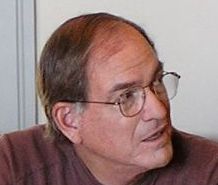
Cap-And-Dividend Advocates Pitch Plan To Ease Regional Disparities
Charles Davis, Carbon Control News, Posted November 12, 2009A coalition of local and regional environmental groups is citing an unpublished analysis from researchers at the University of Massachusetts to argue that an emissions trading scheme that auctions all carbon permits and returns the revenue directly to citizens through rebates or tax cuts—a policy known as cap-and-dividend—is better suited to easing the impacts of greenhouse gas restrictions on areas of the country most dependent on fossil fuels…
… [A] new paper by George Abar, a former legislative director for Kerry and currently a consultant to the Rockefeller Family Fund,… cites a previously unpublished analysis from the University of Massachusetts’ Political Economy Research Institute (PERI) indicating that a modest set-aside for “transition assistance” to the most carbon-intensive regions of the country—based on a formula that weighs the number of manufacturing and coal-mining employees a state has and the carbon-intensity of its electricity—would more than compensate those areas likely to most adversely affected by greenhouse gas restrictions…
The scenario analyzed by PERI would also leave an additional $30 billion for other uses, “such as clean energy investments, compensating local, state and national governments for higher energy costs, or addressing regional variability,” according to the paper.
“A policy that caps carbon, auctions pollution permits, and returns the revenue directly to the American people will meet our environmental and economic goals,” Abar concludes. “It will limit carbon emissions and send a powerful price signal, spurring investment, innovation and job creation in clean energy techologies. It will provide a knowable, timely and direct benefit to American households, and it will leave lower- and middle-class families better off or unharmed.”
 Professor Emeritus Samuel Bowles, whose continued close ties with the department include teaching his graduate course on competition, coordination, cooperation and conflict, has recently published an important article in the journal Science.
Professor Emeritus Samuel Bowles, whose continued close ties with the department include teaching his graduate course on competition, coordination, cooperation and conflict, has recently published an important article in the journal Science.  An interview with UMass Professor Lee Badgett on how the Dutch view same-sex marriage recently appeared in the New York Times.
An interview with UMass Professor Lee Badgett on how the Dutch view same-sex marriage recently appeared in the New York Times. M.V. Lee Badgett, professor of Economics and director of the Center for Public Policy and Administration, will deliver the first Distinguished Faculty Lecture in this year’s series on Monday, Nov. 9 at 4 p.m. in the Bernie Dallas Room in Goodell Hall.
M.V. Lee Badgett, professor of Economics and director of the Center for Public Policy and Administration, will deliver the first Distinguished Faculty Lecture in this year’s series on Monday, Nov. 9 at 4 p.m. in the Bernie Dallas Room in Goodell Hall. draws on
draws on